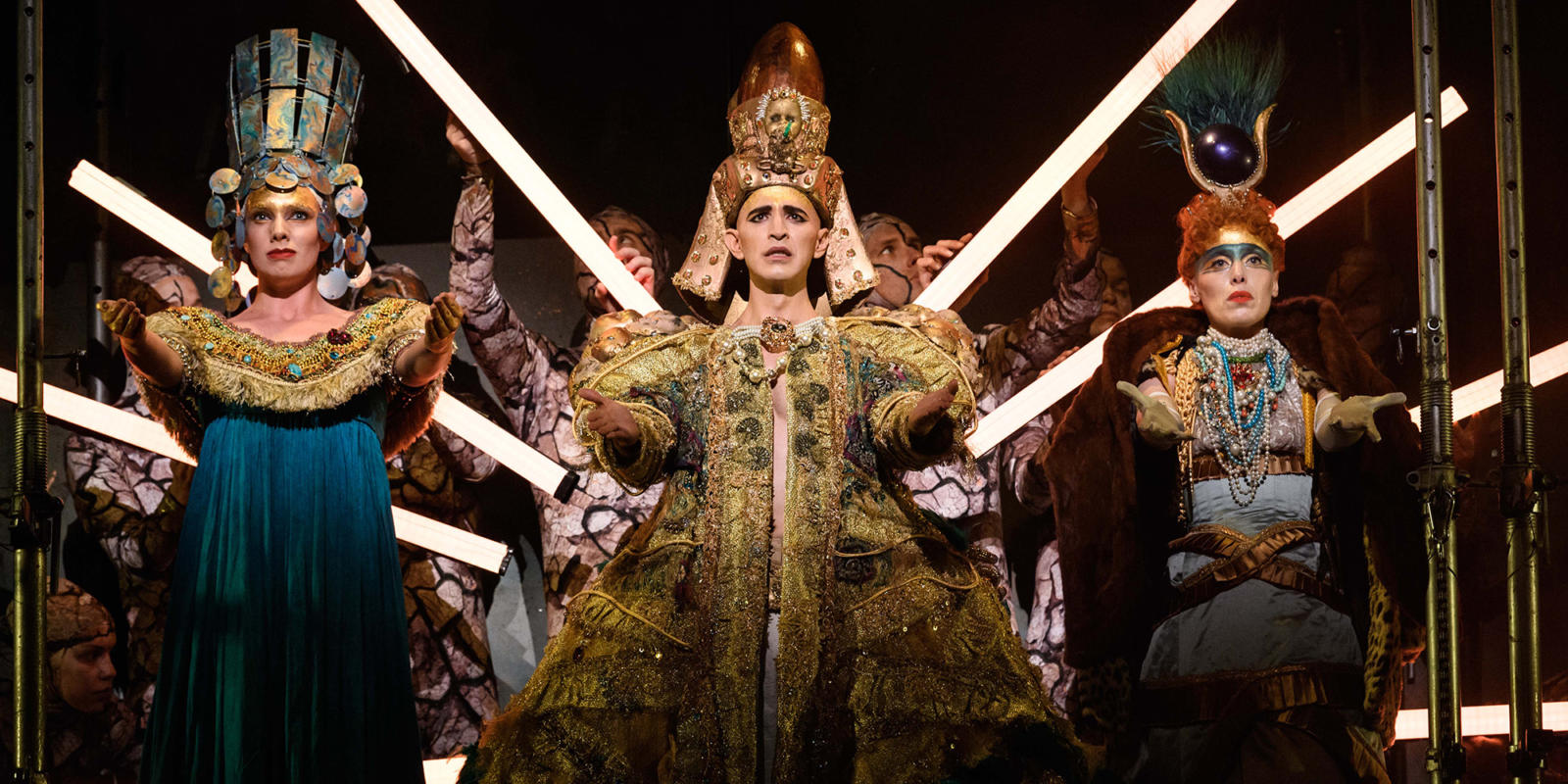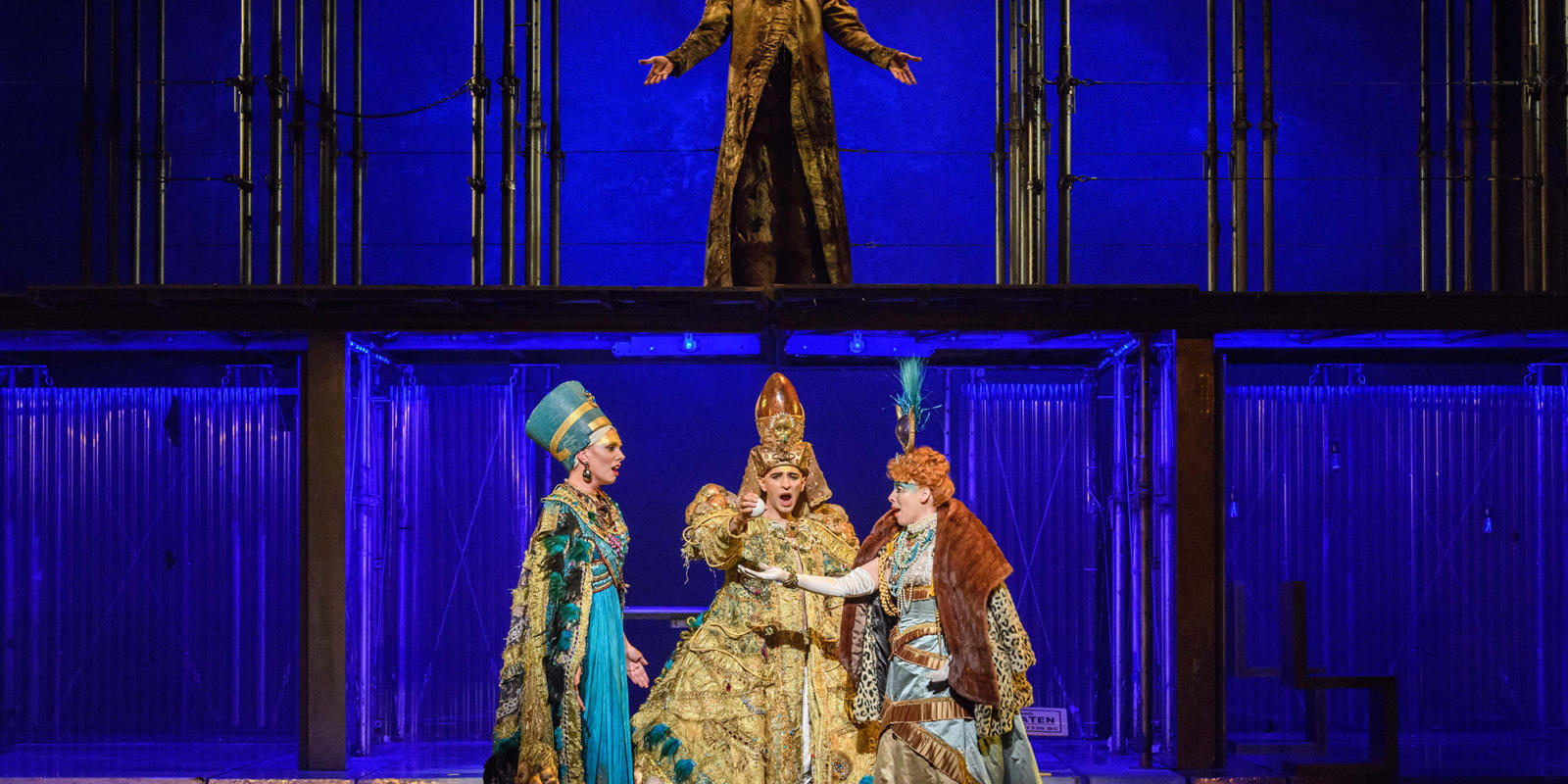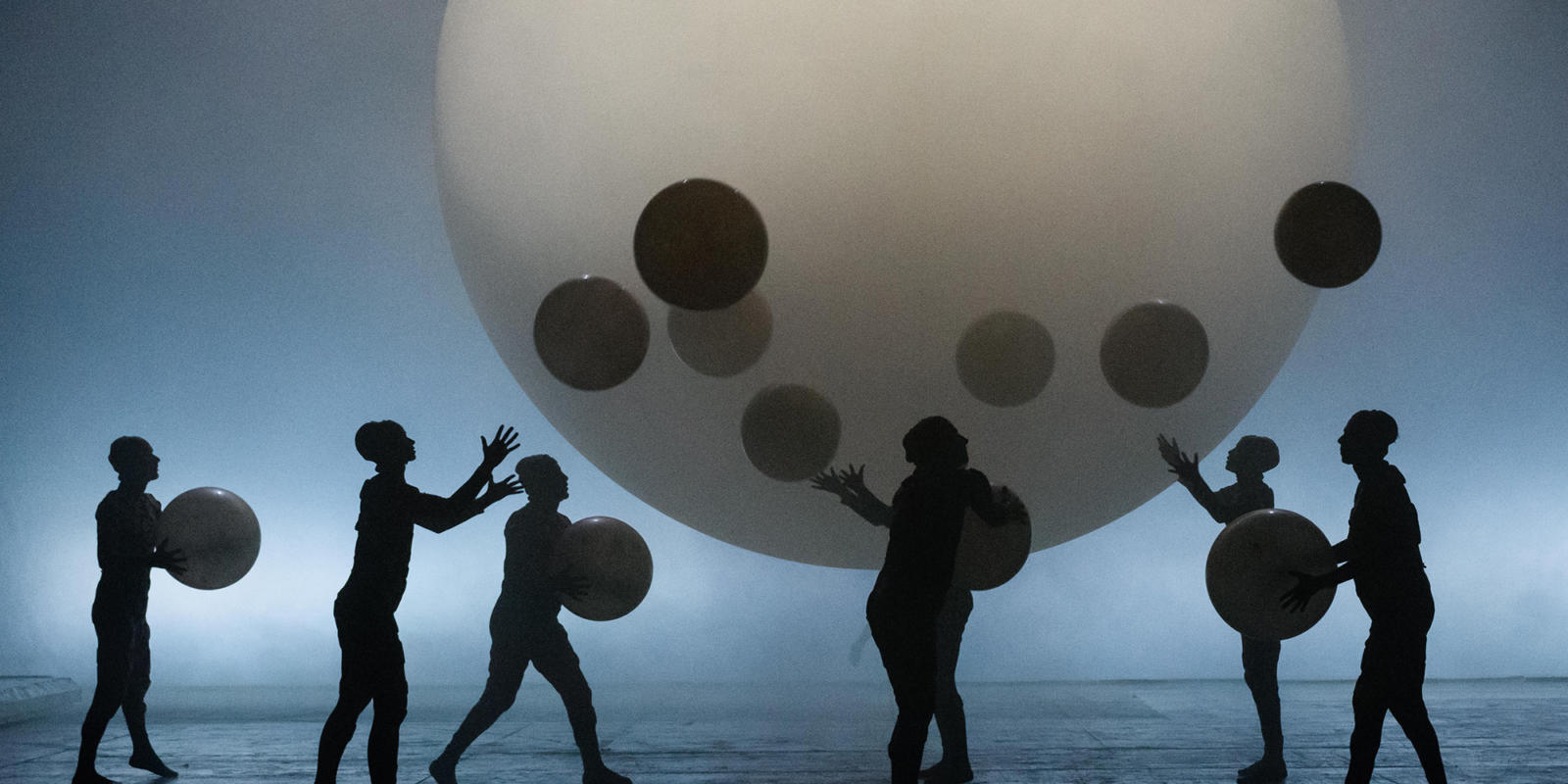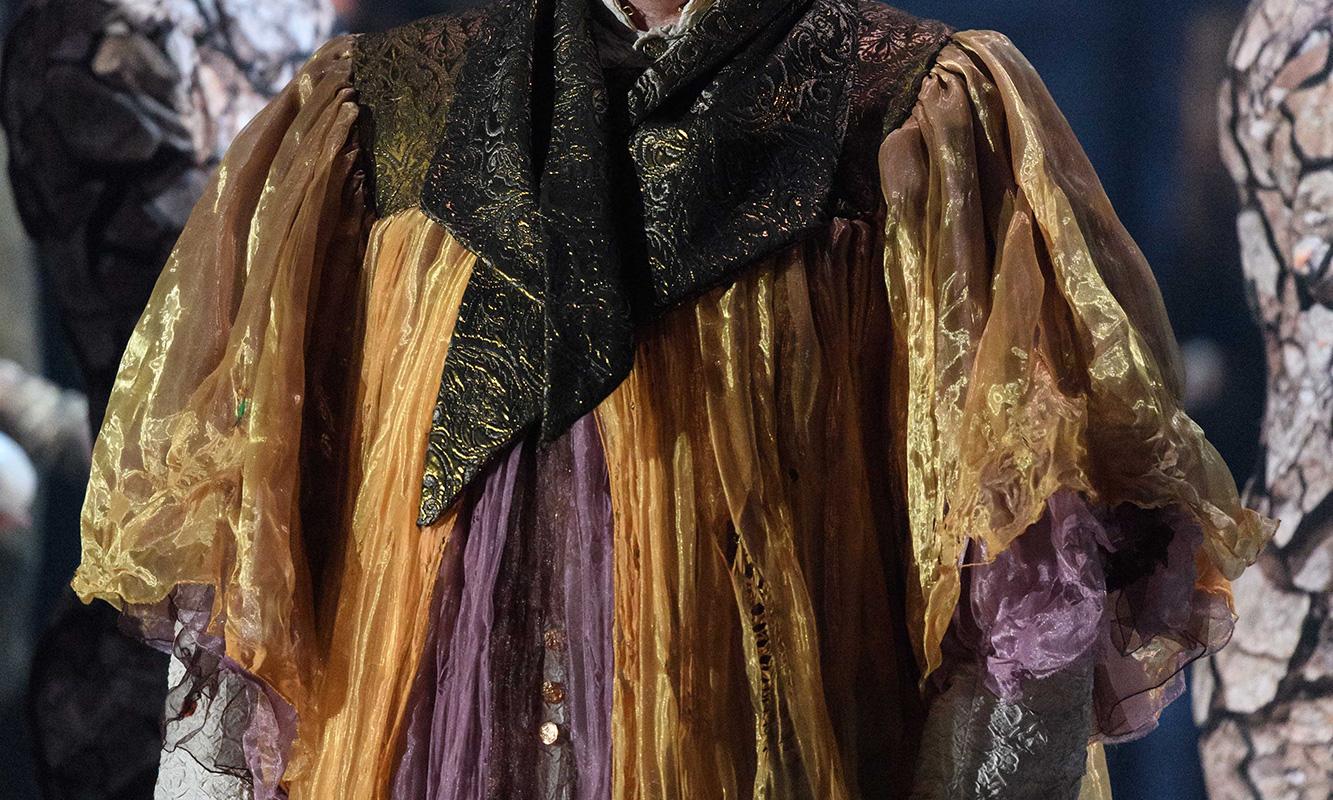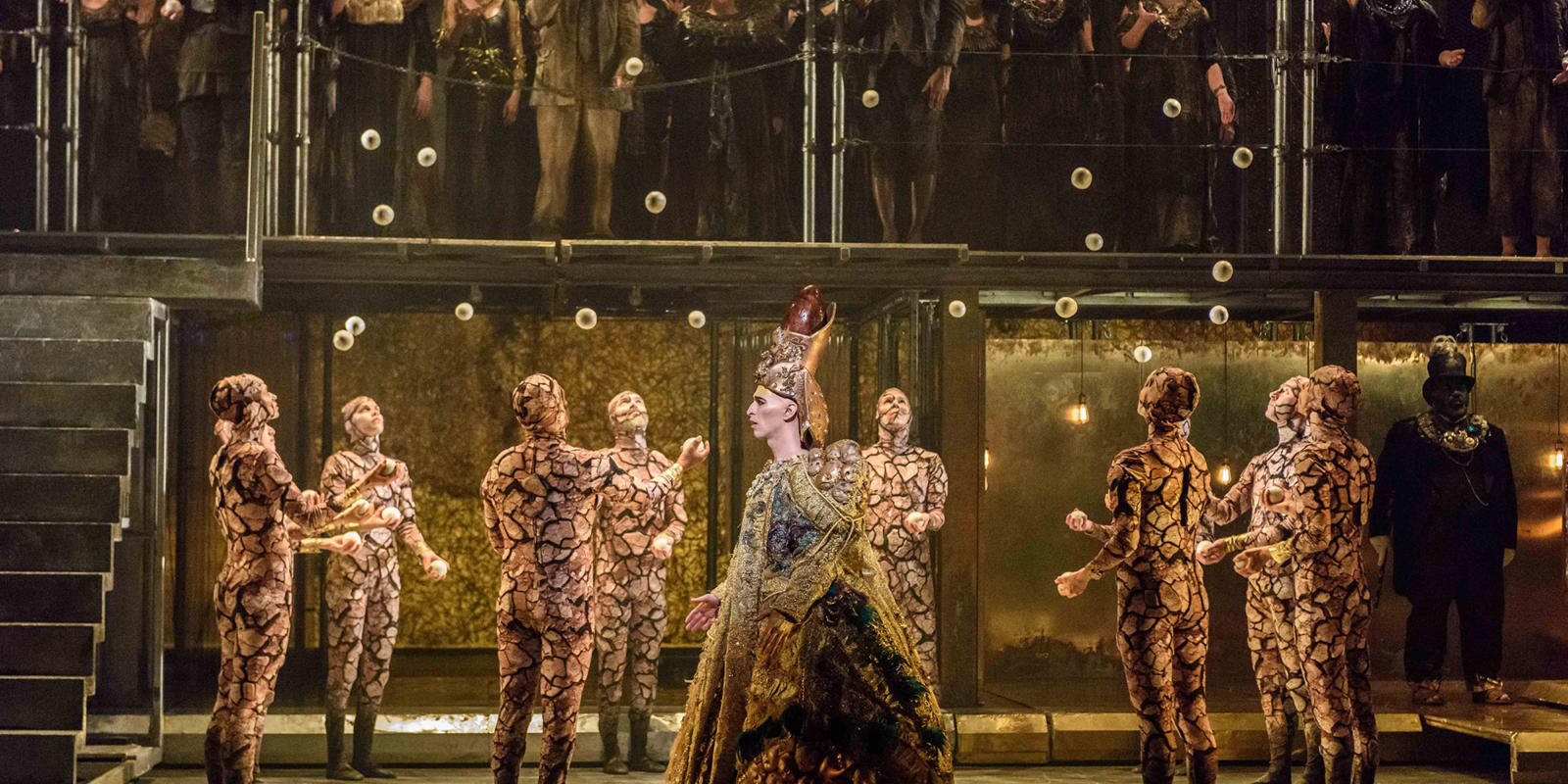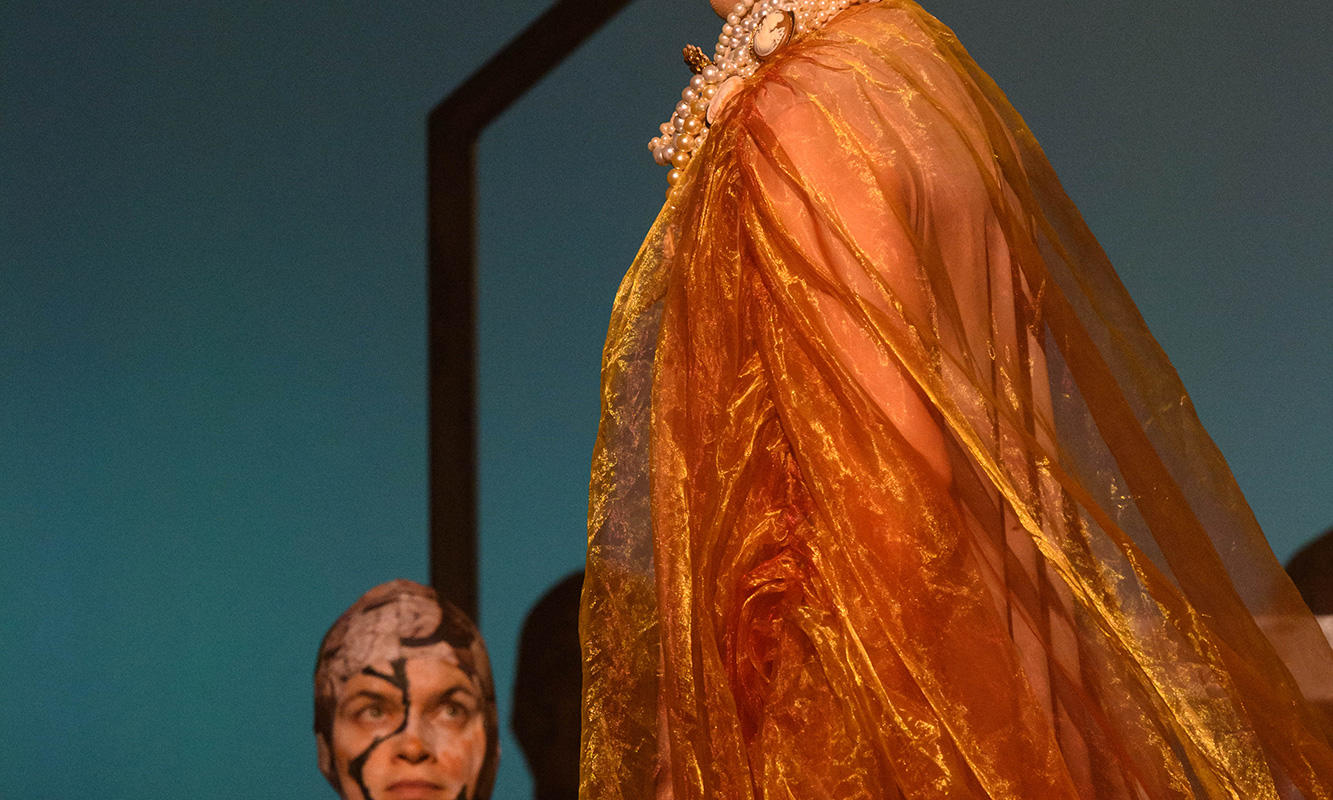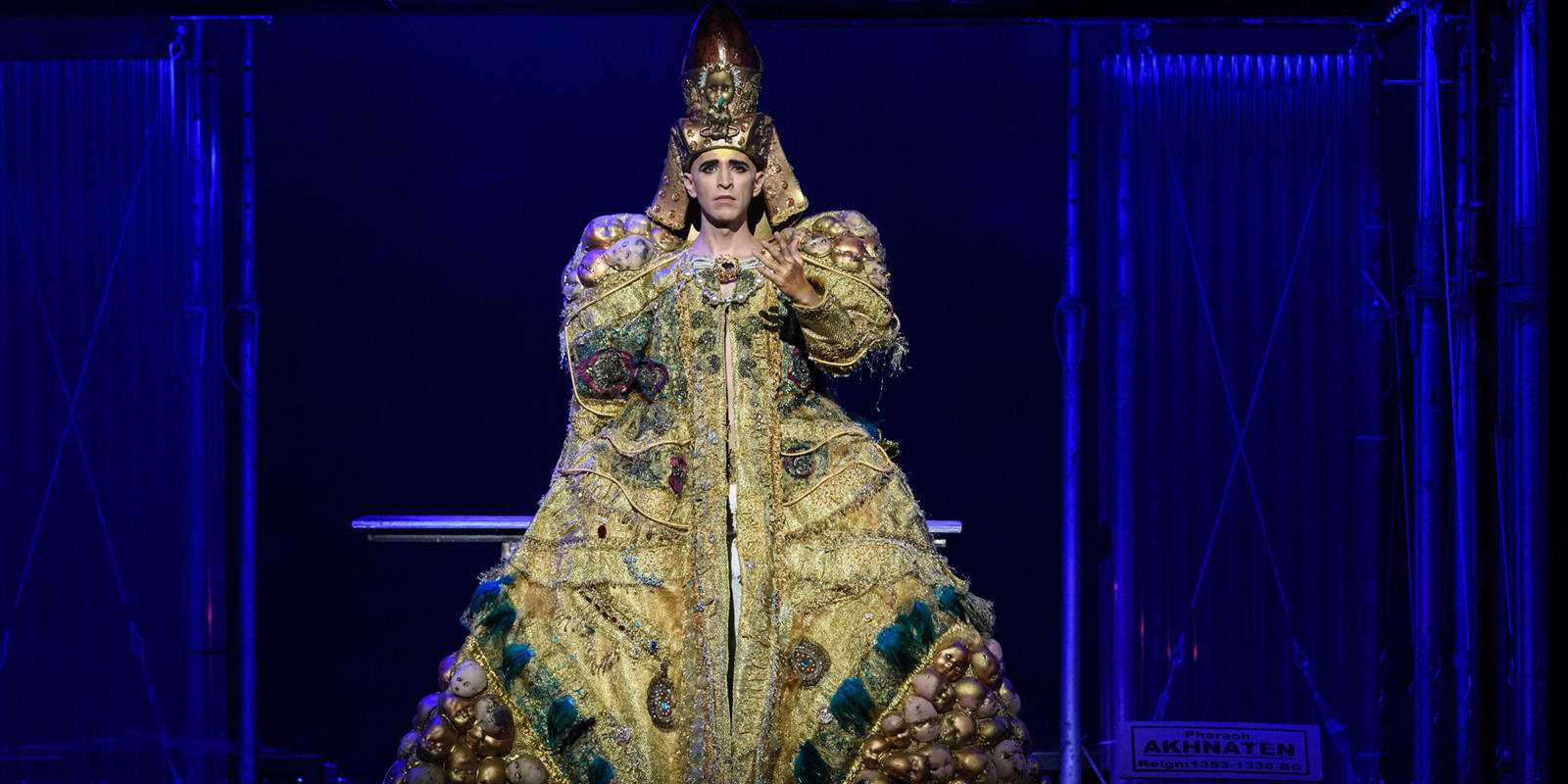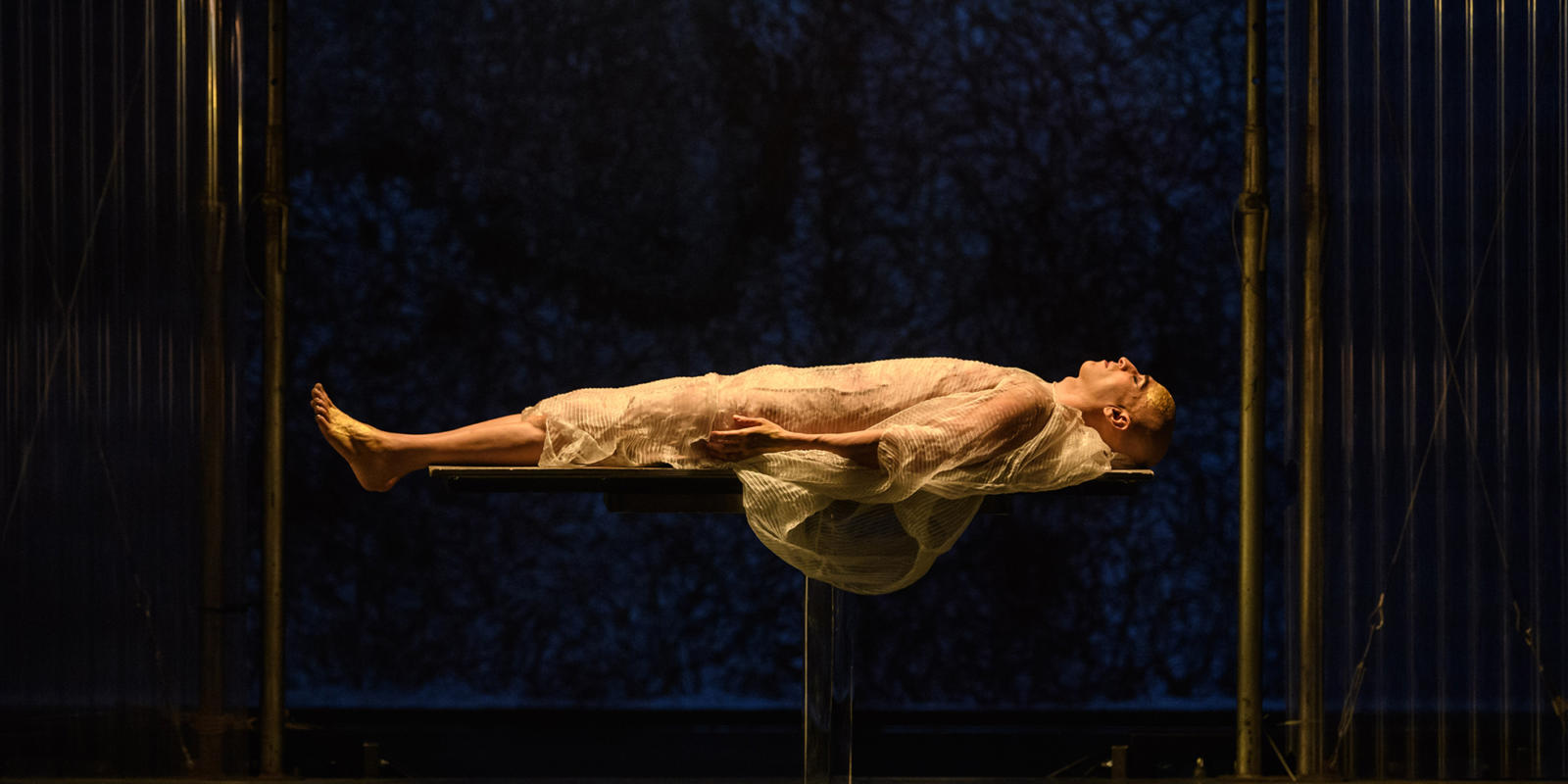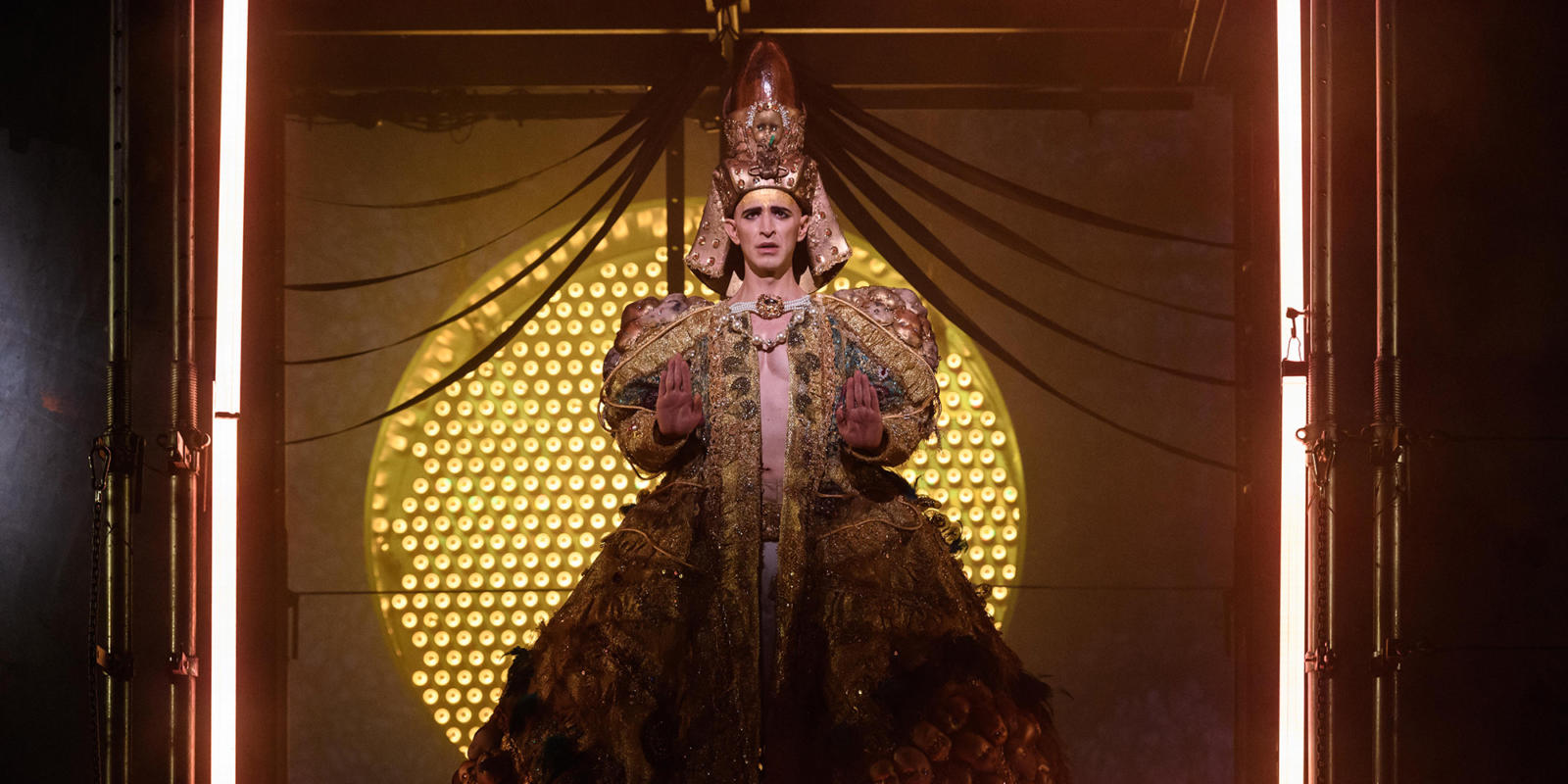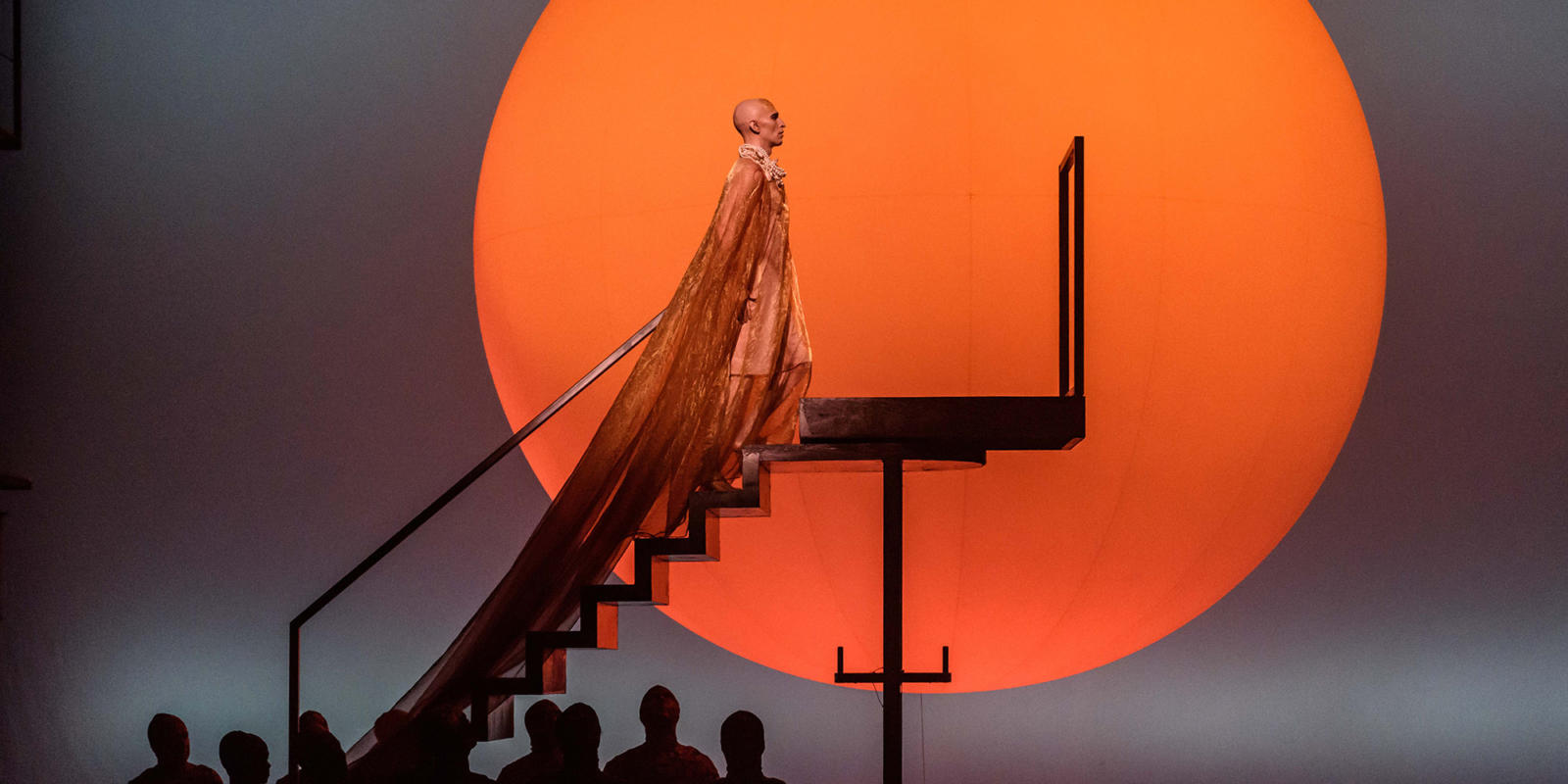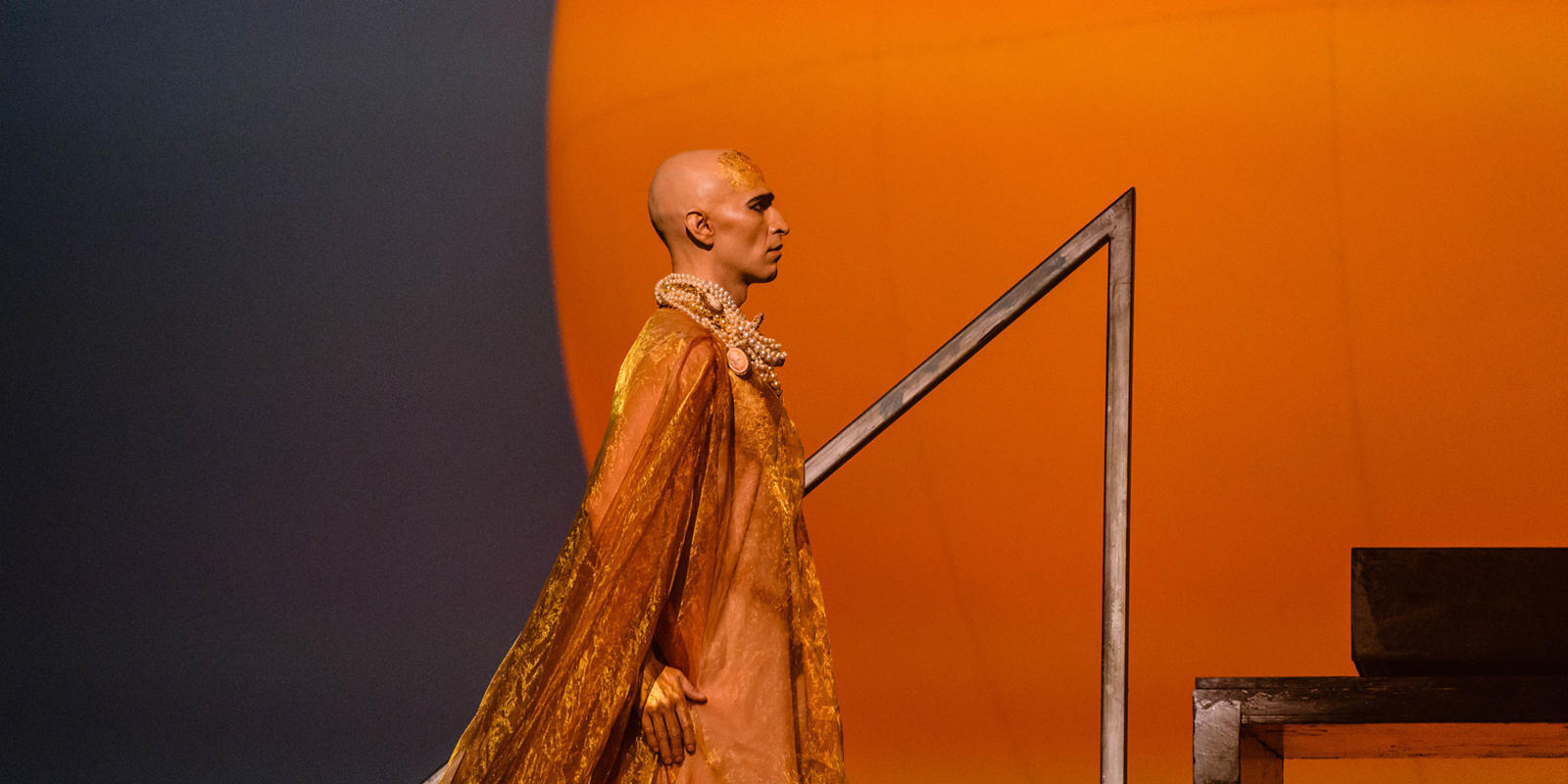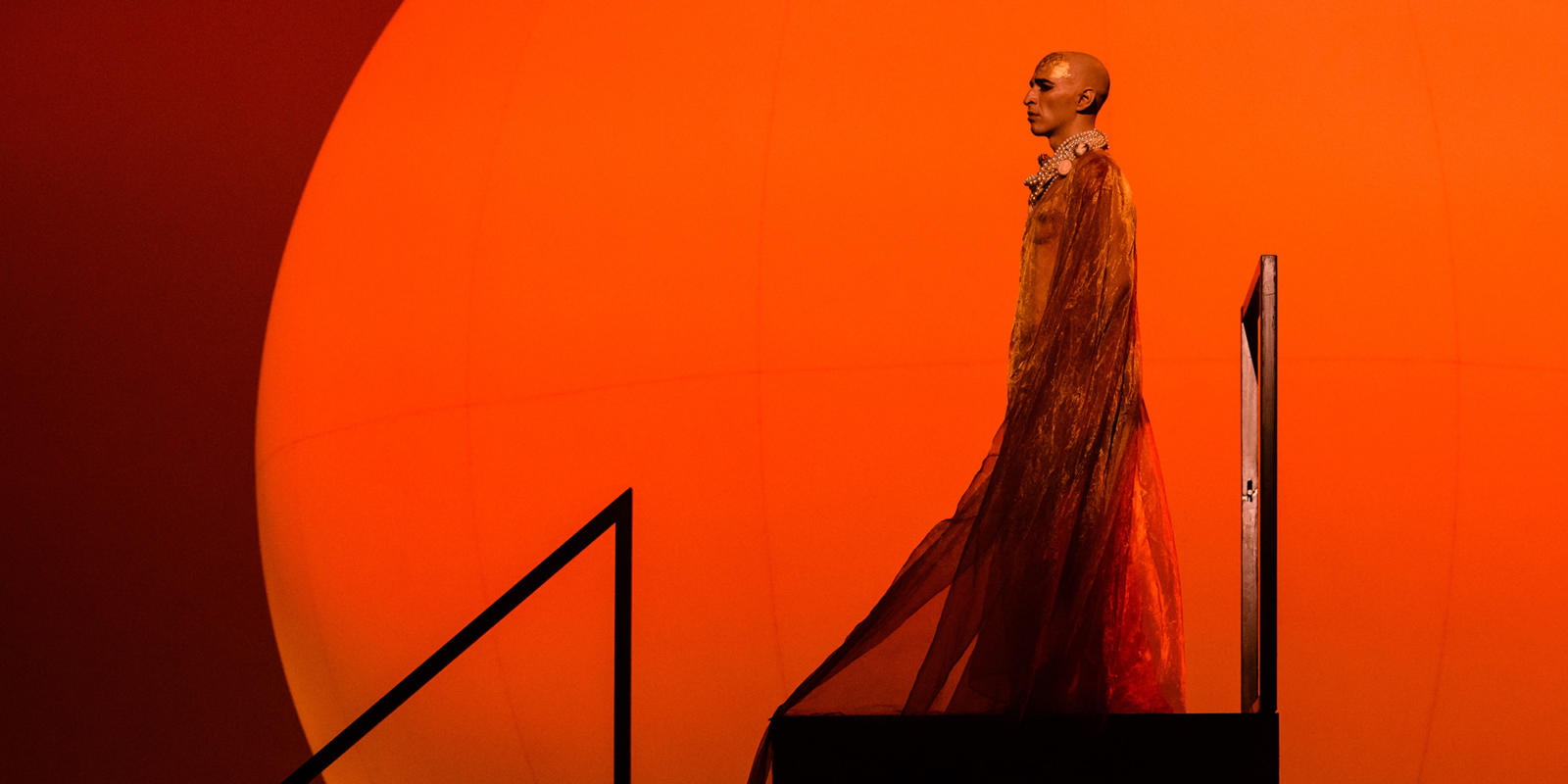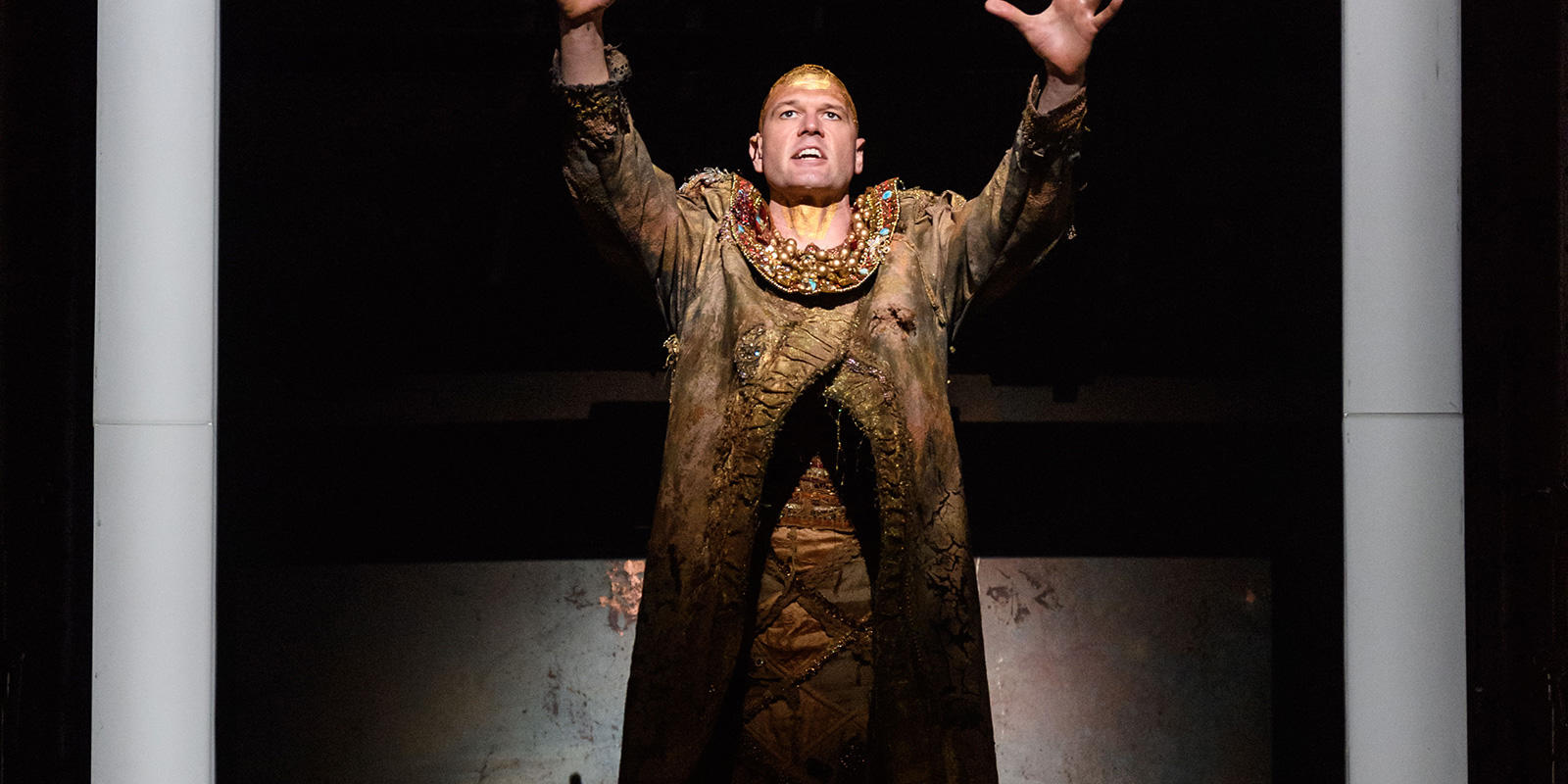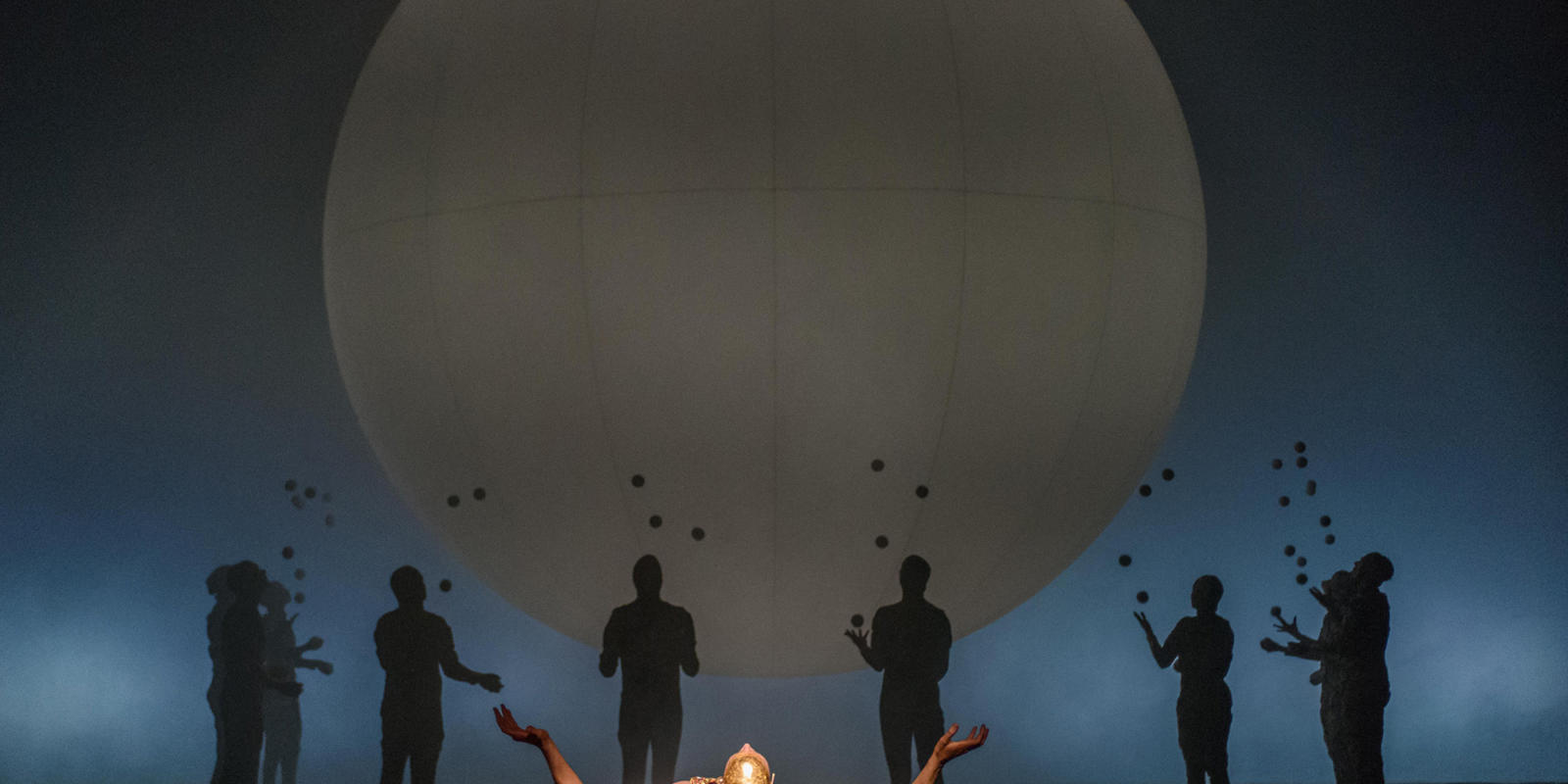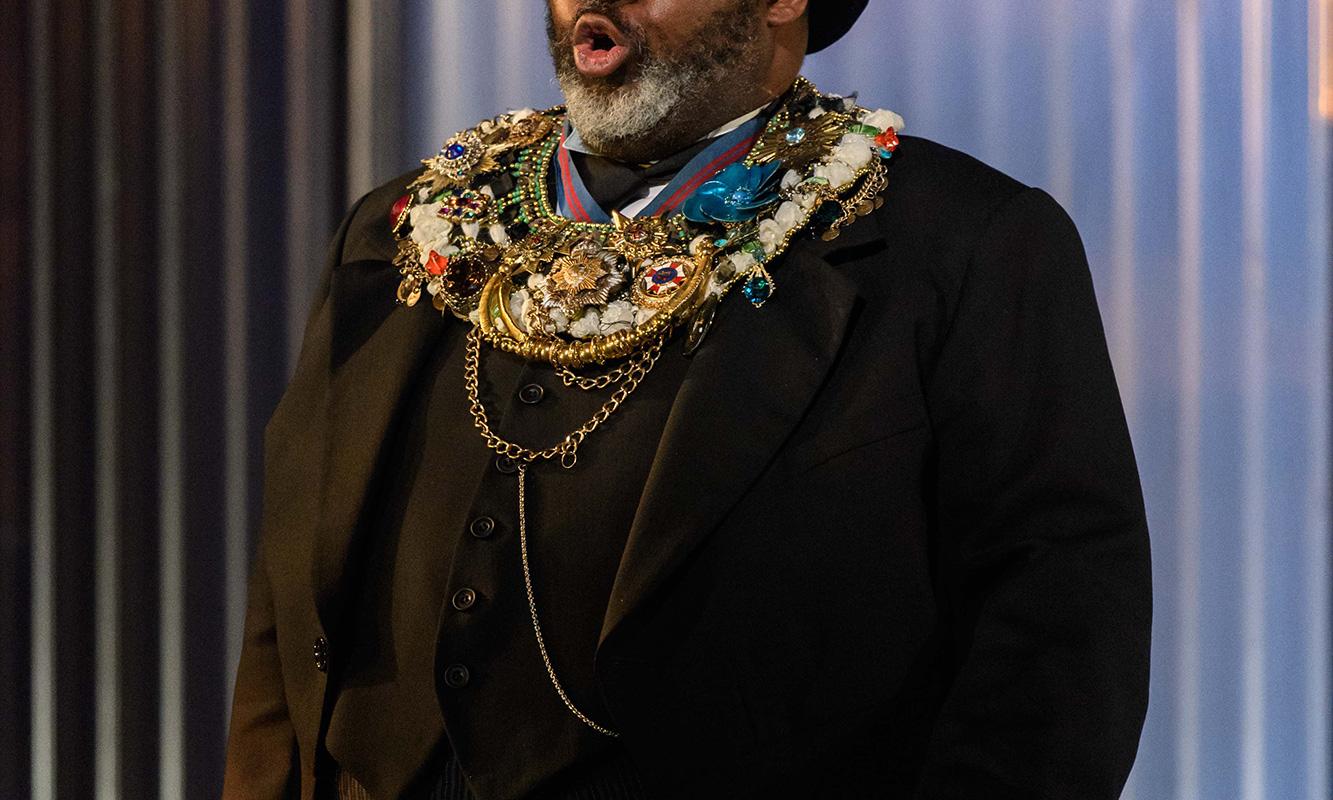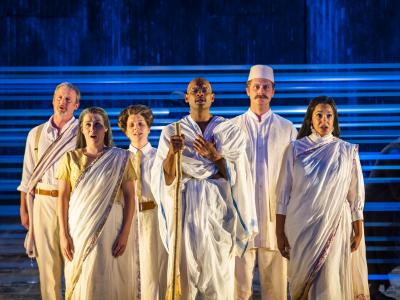An Introduction to Akhnaten
Take a trip back to the time of the Pharaohs, in Phelim McDermott’s critically celebrated production of Philip Glass’s Akhnaten. If you like your theatre to be a visual spectacle on a scale you’ve never seen, Akhnaten is for you. Read up on Philip Glass‘s most mesmerising work.
The final instalment of Glass’s Portrait Trilogy
Video
Akhnaten is one of composer Philip Glass’s three ‘portrait’ operas. The operas in the trilogy are all based around different themes and historical figures: portraits of people whose personal vision transformed the thinking of their times through the power of ideas rather than by military force.
- Einstein on the Beach (1976), the eponymous scientist and his discoveries, particularly those of the theory of relativity and his unified field theory.
- Satyagraha (1980) tackles the politics around Mahatma Gandhi’s nonviolent protests during his time in South Africa.
- Akhnaten (1983) has a focus on religion depicting the story of the eponymous ancient pharaoh, in his revolutionary shift away from the worship of the Egyptian pantheon.
The mesmerising opera uses texts from ancient scripts such as The Book of the Dead, and like Satyagraha, Akhnaten makes use of languages rarely used in opera; in this case Hebrew, Egyptian and Akkadian.
Turn back the Sands of Time...
Video
The pharaoh Akhenaten is primarily known for his radical shift in religion that was enforced during his reign. He decreed that traditional Egyptian polytheism (the belief of numerous deities) should be abandoned. Instead, Akhenaten wanted his people to worship just one god – the sun (known as Aten – hence the -aten suffix to his name).
In a bid to enforce his new way of thinking, Akhenaten closed the temples to the old gods, wiped their names from monuments (in the process destroying a lot of historical records that archaeologists have spent decades trying to recover) and built a new Egyptian capital, Akhetaten.
Additionally, Akhenaten is related to two figures that come to mind when we think of Ancient Egypt: you’ve likely heard of his son Tutankhamun and wife Nefertiti.
Inspired by Freud and Velikovsky
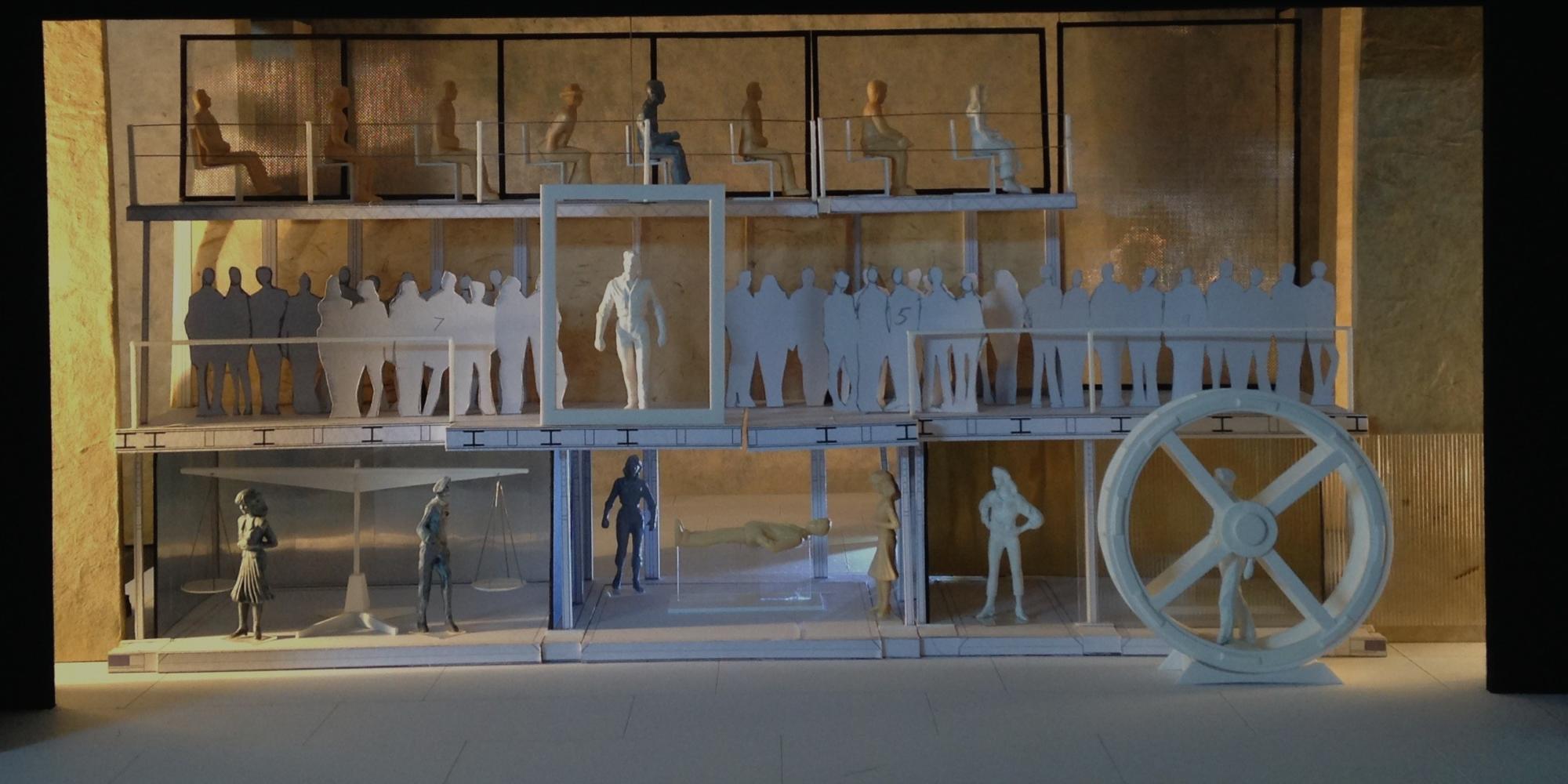
The inspiration for writing Akhnaten came from his reading of Sigmund Freud’s Moses and Monotheism and Immanuel Velikovsky’s Oedipus and Akhnaton. Velikovsky’s controversial book (the work that inspired Glass the most) explores the parallels between the Greek Oedipus, legendary king of Thebes, and the Egyptian Pharaoh Akhenaten.
This isn’t the first time that ancient religions and legendary figures have been the source for epic operas. From the norse gods featured in Wagner’s Ring Cycle to the various gods in the Orpheus Series have all been reimagined in stagings of epic proportions.
Read our guide to operas based on myths and legends to learn more.
The immersive opera doesn’t have a conventional linear narrative or libretto. Instead, the story of Akhnaten is told through a series of tableaux.
The complex rhythmic pulsing of Glass’s meditative score are visualised with stylised movement and choreographed juggling by Improbable. Akhnaten loosely follows the real story of the emperor’s rise to power, the erecting of his new city and the fall of his dynasty.
Read more about Philip Glass’s music here to learn more about his extraordinary musical style.
ENO's close relationship with Akhnaten
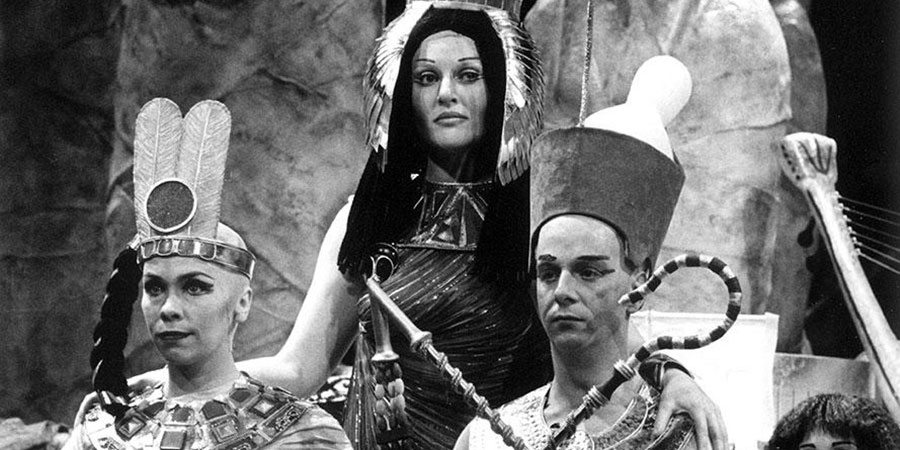
A year after its world premiere at the Stuttgart theatre, ENO brought Akhnaten to the London Coliseum for its UK premiere, beginning a relationship with the work that would last for decades to come.
In 2023, director Phelim McDermott’s Olivier award-winning production was revived by ENO at the London Coliseum following critically acclaimed productions at ENO and the Metropolitan opera in New York. Notably, in 2022 the Met’s recording of Akhnaten won a Grammy Award for Best Opera Recording, featuring countertenor Anthony Roth Costanzo, who returned for our 2023 production.
To find out more about the pharaoh Akhnaten, take a look at our guide.

